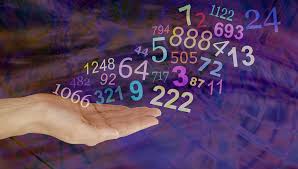Numbers are more than just characters on a screen or symbols in a book. For centuries, they have held special significance across different cultures – bingo casino. In this blog, we will explore how various numbers are perceived as lucky or unlucky in different parts of the world. It’s a fascinating journey into the world of numerology and beliefs.
The Number 4
East Asian Cultures
In China and Japan, the number 4 is seen as unlucky. This is because the pronunciation of the word for ‘four’ sounds very similar to the word ‘death’ in both Mandarin and Japanese. As a result, you’ll often find that buildings may skip the fourth floor. Similarly, the number plates on cars or telephone numbers are often void of the number 4.
Western Cultures
In contrast, the number 4 in some Western cultures is not seen as particularly unlucky. Many people consider it stable and rooted because it is associated with square shapes and symmetry.
The Number 7
Western Cultures
In many Western cultures, the number 7 is often regarded as incredibly lucky. This can be traced back to ancient times, when people started associating 7 with divine qualities. There are seven days in the week, seven wonders of the world, and even seven virtues in Christianity.
East Asian Cultures
In some East Asian cultures, however, the number 7 can also be associated with mourning. For instance, the seventh month in the traditional Chinese calendar is commonly known as Ghost Month. During this time, it’s believed that the spirits come out from the lower realm.
The Number 13
Western Cultures
In Western cultures, particularly in the UK and the USA, 13 is often considered highly unlucky. Friday the 13th is especially infamous and is often linked to bad luck. This superstition might find its roots in religion and history. For example, during the Last Supper, Judas Iscariot, who later betrayed Jesus, was the 13th guest to sit at the table.
Italian Culture
Interestingly, in Italy, 13 is considered lucky! It is often associated with prosperity and abundance. “fare tredici” is used in Italy when someone hits the jackpot or enjoys good fortune.
The Number 8
East Asian Cultures
In many East Asian cultures, especially China, the number 8 is seen as a symbol of good luck. In Mandarin and Cantonese, it sounds like the word for ‘prosperity’ or ‘wealth’. Because of this, people often go to great lengths to include the number 8 in their lives. For example, they may choose telephone numbers, car number plates, or even wedding dates that contain this number.
Western Cultures
In Western cultures, the number 8 does not hold as much significance. It is generally seen as a neutral number. However, landing an 8 on dice could be considered a stroke of luck in some contexts, such as gambling.
The Number 9
Western Cultures
In Western cultures, the number 9 is often considered neutral or lucky. Some people think it symbolizes completeness or eternity. For instance, a pregnancy lasts nine months, making the number symbolic of life and creation.
Japanese Culture
In Japan, however, the number 9 is often seen as unlucky because its pronunciation sounds like the word for ‘pain’ or ‘suffering’. Like the number 4, you’ll find that the number 9 is often avoided in things like room numbers or important dates.
Other Notable Numbers
The Number 5 in Chinese Culture
In Chinese belief, 5 is a fortunate number. This relates to the five core elements: wood, fire, earth, metal, and water.
The Number 3 in European Cultures
In many European cultures, the number 3 is considered lucky. Phrases like “third time’s the charm” highlight this belief. The number 3 often appears in fairy tales, religious texts, and folklore, reinforcing its positive connotations.
Applying This Knowledge
Understanding the varying perceptions of numbers can be particularly useful if setting up an online casino or engaging in other ventures. In the gambling world, where numbers play a crucial role, it’s essential to be sensitive to these cultural nuances. It may affect everything from user experience design to marketing strategies.
The Bottom Line
Numbers hold different meanings in various cultures. While one number may bring luck in one part of the world, it could bring bad fortune in another. By embracing these cultural differences, you show respect and make more informed decisions whether in your





Be First to Comment